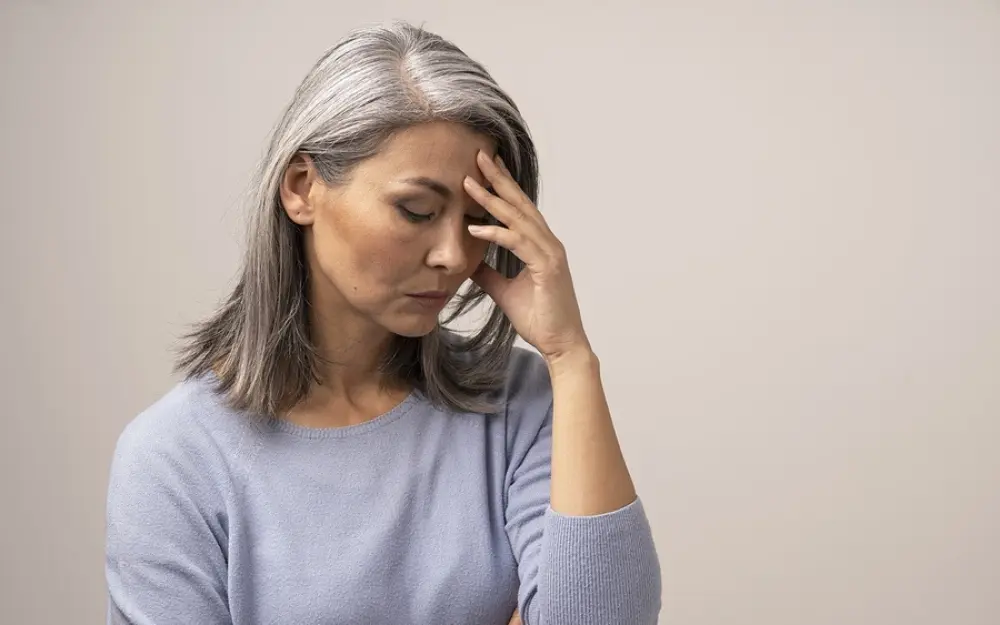When we think about sex hormones, we usually associate testosterone with men and estrogen with women. However, both biological sexes possess testosterone and estrogen in the required amounts to function to the fullest. While women naturally produce lower levels of testosterone than men, this hormone is still important to control energy, mood, libido, and body fat.
Lack of sperm production, enlarged breast tissue (gynecomastia), and prostate cancer in extreme cases, are the results of low testosterone levels in men. Similarly, women with low T experience fatigue, decreased sex drive, mood swings, and reduced muscle strength. If these symptoms of low testosterone are not treated at the earliest, they can significantly affect the quality of life and overall well-being.
There are several reasons why one’s testosterone levels might take a dip. Here are some of the causes of low testosterone:
- Problems with the pituitary gland or hypothalamus
- Usage of drugs like opioids
- Infections such as mumps
- Genetic abnormalities like Klinefelter syndrome
- Damage to the testicles (in men)
Fortunately, with research breakthroughs in recent times, healthcare providers are now turning to testosterone replacement therapy (TRT) as a potential solution to combat these symptoms.
Let’s now dive deep and explore the following in this article:
- Role of testosterone in women’s health
- Symptoms of low testosterone
- Benefits and types of testosterone replacement therapy
- Side effects and safety concerns
- Tips to add testosterone therapy to your practice
What Is the Role of Testosterone in Women’s Health?
Just as how testosterone and other androgens play an important role in men’s health and sexuality, they are equally important for women, too.
As women age and are subjected to stress and certain health conditions like adrenal fatigue or thyroid problems, testosterone production starts dwindling. Testosterone levels naturally start to decline after the age of 30 and drop even more during menopause. Stress can also lower testosterone by disrupting the body’s normal hormone balance. Conditions like polycystic ovary syndrome (PCOS) can cause testosterone levels to either decrease or increase, leading to an imbalance.
Here’s where women should keep hormones balanced since it’s key to feeling good overall. The right amount of testosterone will fight off tiredness, keep mood steady, promote healthy sex drive, and maintain bone mass. What’s more, it also helps regulate type 2 diabetes, keep a lean muscle mass, and produce healthy red blood cells, which can aid with metabolism and weight loss.
Common Symptoms of Low Testosterone in Women
Most often, these symptoms of low levels of testosterone in women are easily missed since they are similar to the symptoms of natural aging and other health conditions:
- Fatigue and mood changes
- Cognitive issues
- Trouble sleeping (sleep apnea)
- Anemia
- Decreased bone density (leading to osteoporosis)
- Obesity
- Low sex drive
- Hot flash
- Changes in menstrual cycle and infertility
If these symptoms of testosterone deficiency are not treated, they can significantly impact women’s quality of life, strain personal relationships, and affect self-esteem.
If you’re experiencing a combination of these symptoms, discuss them with your healthcare provider or consult an endocrinologist/urologist. They’d run a blood test to assess your medical condition and explore treatment options, including testosterone replacement therapy if appropriate.
The Benefits of Testosterone Replacement Therapy for Women
The clinically recognized optimal level of testosterone in women is 15–70 nanograms per deciliter (ng/dL). When this mark takes a dip, women suffer from hypogonadism. However, this condition can be rectified through testosterone replacement therapy (TRT), and it alleviates many of the issues caused by signs of low testosterone.
Here are some of the benefits of TRT:
- Improvement in sexual health. TRT can help bring back your sexual desire and improve sexual function for both men and women. It tackles problems like erectile dysfunction and low arousal, allowing you to enjoy a more fulfilling intimate life.
- Boosting energy levels. When your testosterone levels are balanced with TRT, you’ll feel a noticeable boost in energy and stamina. So you can enjoy the things you once did tirelessly—be it hitting the gym, spending time with your loved ones, or just going about your routine.
- Enhancing mental clarity. With testosterone treatment, your cognitive function will sharpen, making it simpler to focus on tasks at hand. You’ll feel less anxious and stop being overly tense about your responsibilities.
Clinical studies have also demonstrated the effectiveness of TRT in women when properly administered and monitored. In fact, a study by NCBI.gov involving 533 women found that testosterone increased the satisfactory rate of sexual activity and improved libido compared to a placebo.
Types of Testosterone Replacement Therapy Available
For treating low testosterone symptoms, TRT can be administered in any of the following ways:
- Supplementation
- Creams
- Gels
- Patches
- Pellets
Each of these comes with its own advantages and considerations. However, pellet therapy is gaining popularity these days as a long-lasting and consistent method for delivering testosterone.
In this approach, pellets that are as small as a grain of rice are inserted in the hip or the buttock. They gradually release testosterone into the bloodstream over several months. So, once the procedure is done, you can go about your daily tasks and let the pellets work their way through for the designated time period of three to four months. You don’t have to bother about daily applications or the risk of accidental exposure to others, as in the case of other methods like creams, gels, and patches.
When you go for TRT, your healthcare provider will give you a personalized treatment plan to ensure optimal results, considering your symptoms, medical history, and health goals. Throughout your treatment, your testosterone levels will be monitored regularly, and the dosage will be adjusted as necessary to achieve the best results while minimizing potential side effects. If you have any doubts or concerns, voice them with your healthcare provider.
Addressing Safety Concerns and Monitoring for Side Effects

When done under the care of certified professionals who follow proper protocols, testosterone therapy is generally safe. However, some patients may experience common side effects of testosterone, like acne, increased facial hair or body hair growth, and breast tissue enlargement. These side effects are usually mild and manageable with the right dosing and regular check-ins. It’s also important to understand that, at the right dosage, testosterone therapy doesn’t cause significant masculinization in women.
Healthcare providers should monitor patients regularly to make sure the therapy is safe and effective. This might involve periodic blood tests to check testosterone levels and other health markers.
It’s also crucial to dispel common myths, like the belief that testosterone therapy poses a higher risk of cancer. By addressing these concerns, healthcare providers can help patients feel more comfortable and confident in their treatment. Offering clear, honest information about both the benefits and risks of testosterone therapy allows patients to make well-informed decisions about their care.
How to Introduce Testosterone Replacement Therapy to Your Practice
To introduce testosterone replacement therapy (TRT) in your practice, start by getting yourself and your team familiar with hypogonadism and the treatment options available. Consider advanced training, like EvexiPEL, to boost your knowledge and skills.
By offering a range of hormone therapies, you can attract more patients by addressing low testosterone alongside other hormonal issues. Personalized care is essential, so develop protocols for regular monitoring and adjust dosages as needed. Scheduling follow-ups can help ensure your patients are satisfied and feeling their best.
Finally, don’t forget to spread the word about your new services! Use your website, social media, and patient communications to let people know how you can help them with low testosterone and other hormonal imbalances.
Empower Your Patients and Practice with Testosterone Replacement Therapy
Recognizing and treating low testosterone in women is essential for improving their quality of life. By offering testosterone replacement therapy (TRT), you can enhance your care and support better patient outcomes.
EVEXIAS Health Solutions helps healthcare providers grow their practices with comprehensive training and support. Become an EvexiPEL-certified provider today for advanced HRT education and dedicated support from a local Practice Development Specialist.
With EvexiPEL, you’re all set to provide top-notch care while expanding your practice and boosting your bottom line.









